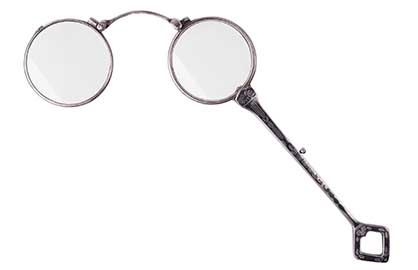Swaps as an engagement where two parties exchange financial instruments. A financial instrument is a term often used to refer to tradable monetary assets that may include cash, contractual right to receive cash, or evidence of ownership of a certain asset. Swaps are essentially a derivative contract in which the value of the contract depends on the assets it represents. A swap between two parties may be based on interest rates, cash flows, derivatives, bonds, or stocks. However, the assets themselves are not exchanged, but rather their cash flows. Each cash flow is one leg of the swap.
Types of swaps
The first type of swap to be reviewed in the paper is the commodity swap. In commodity swaps, the cash flows to be exchanged are linked to commodity prices. Commodities are physical assets such as precious metals, base metals, energy stores (such as natural gas or crude oil) and food (including wheat, cattle, etc.). Commodity swaps were first traded in the mid-1970’s enabling producers and consumers to hedge commodity prices. Swaps involving oil prices are probably the most common. The floating leg of a commodity swap is tied to the price of a commodity or a commodity index, while the fixed leg payments are stipulated in the contract as in an interest rate swap. It is common for a commodity swap to be settled in cash.
No commodities are exchanged during the ‘swap trade’, cash is exchanged instead, in commodity swaps, exchanged cash flows are dependent on the price (floating/market/spot) of an underlying commodity. It’s more or less similar to a fixed-floating interest rate swap, the difference is the floating leg is based on the price of the underlying commodity instead of LIBOR or EURIBOR.
Two main types of commodity swaps are discussed, they are fixed-floating commodity swaps and commodity for interest swaps. Fixed-floating commodity swaps are similar to the interest rate fixed-floating swaps except that both legs are commodity based. These are used by commodity producers and consumers to lock in commodity prices. Commodity for interest swaps are similar to equity swaps, in which a total return on the commodity is exchanged for some money market rate (plus or minus a spread).
The second type of swap addressed in the paper is equity swap. Equity swaps are exchanges of cash flows in which at least one of the indices is an equity index. An equity index is a measure of the performance of an individual stock or a basket of stocks. An Equity swap is an agreement to exchange the dividends and capital gains realised on an equity index for either a fixed or a floating rate of interest. The swaps are arranged base on some notional face value at the start of the swap and there is a regular exchange of cash flows based on an agreement term to maturity. Equity swaps (and other equity derivatives) provide synthetic exposure to physical equities
Shariah considerations
The paper highlights how conventional commodity and equity swaps are non-Shariah compliant financial instruments. Commodity and equity swaps are Riba transactions. These financial instruments are premised on the exchange of two cash flows. Exchanged cash flows are dependent on the price (floating/market/spot) of an underlying commodity. Unequal payments in homogenous currencies is tantamount to Riba al-Fadhl. Riba al-Fadhl (known as Riba due to surplus and excess) originates when a Riba item is exchanged for the same item in an unequal amount.
Commodity and equity swaps lock in a fixed price in exchange of a floating price over a defined period. There is agreement to exchange two cash flows. This results in an exchange of two debts owed to one another over the defined period. A contract to exchange two sums of money in the future is known as Bay’ al-Kali` Bil-Kali` (selling a debt for another debt). Bay’ al-Kali` Bil-Kali` is prohibited.
Alternative Solutions
The paper presents several alternatives to the non-compliant swaps as follows:
Dealing with the Commodity Supplier
If the company deals with the commodity supplier, it can use the following Shariah instruments:
- Salam – If the commodity is not yet in existence or not in the ownership of the provider, a Salam contract is ideal. Salam is similar to a conventional forward contract whereby the price of an asset is paid up-front at the time of the contract, for the asset to be delivered later (similar to a ‘deferred delivery’ model in conventional finance).
- Wa’d and Murabahah – The use of Wa’d and Murabahah is another possible product to source the commodity at a fixed rate for a company. The company can take an undertaking to purchase x amount of commodity for x price. The price can incorporate a mark-up in favour of the seller.
- Wa’dan (double Wa’d) – Another possible structure is the use of two independent Wa’d. The company desiring the commodity can make a Wa’d to purchase x amount of a commodity on specified dates. The counter-party can undertake to supply x commodity for x price. This will be part of a master agreement. Sale contracts will transpire on the specified dates. Since the Wa’d is a unilateral promise, it does not have to satisfy the requirements of a bilateral contract (aqd) under Shariah
Dealing with a financier
If a company wants to finance the commodity, the following products can be considered:
- Murabahah to the Purchase Orderer – In this structure, the financier will purchase the commodity upon the request of the company from a third-party seller, in order to resell this commodity to the customer on a deferred basis. The financier will not resell the asset/commodity unless title has been transferred from the seller to the bank.
- Islamic Commodity Price Swap – The Islamic bank and customer each exchange an independent unilateral undertaking, whereby they promise to buy a separate commodity for cost plus profit, where the profit represents the difference in the price of the commodity from the pre-agreed strike price. Each promise is independent and will be exercised on different conditions.



